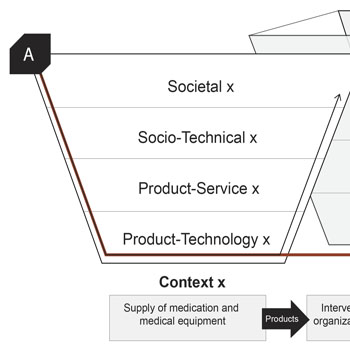Systems Design Perspective of Healthcare Provision in Humanitarian Aid
DOI:
https://doi.org/10.7577/formakademisk.790Keywords:
Systems Design, Socio-Technical-System, Human Factors and Ergonomics, User-Centred Design, Product-Service Systems, Medical Equipment, International Emergency Relief, Humanitarian InnovationAbstract
This study focuses on the role of Systems Design in addressing the challenges of healthcare provision by international emergency relief organizations in developing countries. More specifically the challenges related to the safety and performance of medical equipment that is transferred in the aftermath of a humanitarian crisis. The aim of this paper is to describe the transfer of medical equipment and its associated challenges from a systems perspective and to reflect on the value of Systems Design as an approach to humanitarian innovation, addressing the identified systemic challenges. The concepts of Human Factors and Ergonomics, and Product-Service Systems will be presented as valuable contributions to support designers in handling a larger degree of complexity throughout the design process and to support them to make informed choices regarding this particular context.

Downloads
Published
How to Cite
Issue
Section
License
Authors who publish with this journal agree to the following terms:
- Authors retain copyright and grant the journal right of first publication with the work simultaneously licensed under a Creative Commons Attribution 4.0 License that allows others to share the work with an acknowledgement of the work's authorship and initial publication in this journal.
- Authors are able to enter into separate, additional contractual arrangements for the non-exclusive distribution of the journal's published version of the work (e.g., post it to an institutional repository or publish it in a book), with an acknowledgement of its initial publication in this journal.
- Authors are permitted and encouraged to post their work online (e.g., in institutional repositories or on their website) prior to and during the submission process, as it can lead to productive exchanges, as well as earlier and greater citation of published work (See The Effect of Open Access).
- The author(s) must manage their economic reproduction rights to any third party.
- The journal makes no financial or other compensation for submissions, unless a separate agreement regarding this matter has been made with the author(s).
- The journal is obliged to archive the manuscript (including metadata) in its originally published digital form for at least a suitable amount of time in which the manuscript can be accessed via a long-term archive for digital material, such as in the Norwegian universities’ institutional archives within the framework of the NORA partnership.
The material will be published OpenAccess with a Creative Commons 4.0 License which allows anyone to read, share and adapt the content, even commercially under the licence terms:
This work needs to be appropriately attributed/credited, a link must be provided to the CC-BY 4.0 licence, and changes made need to be indicated in a reasonable manner, but not in any way that suggests that the licensor endorses you or your use.



